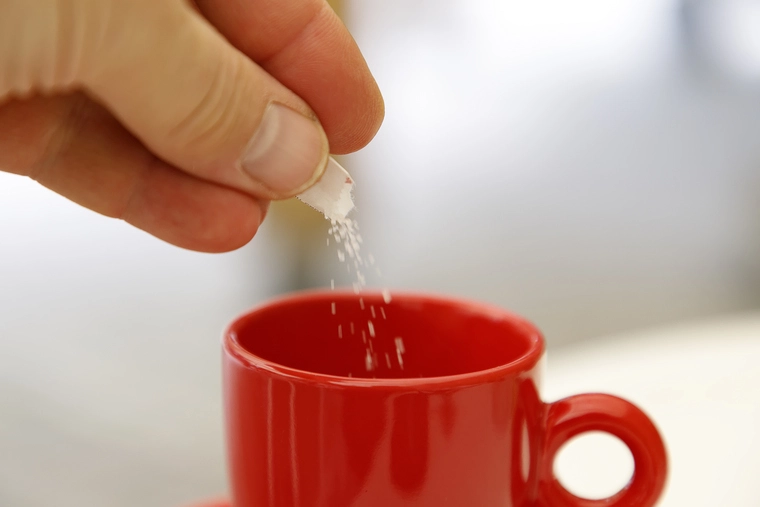A new study suggests the power duo of caffeine and creatine nitrate might be the secret weapon for sharpening your mind, not necessarily your muscles.
Researchers from Jacksonville State University have discovered that a combination of creatine nitrate and caffeine significantly enhances cognitive function more effectively than caffeine alone. This exciting finding suggests a synergistic effect when these supplements are used together.
However, the same study found that the combination did not improve physical performance. This is particularly intriguing since creatine is most commonly used as a supplement to enhance sports performance and aid in recovery after high-intensity activities.
These findings, published in the journal Nutrients, open up new avenues for cognitive performance enhancement, particularly for those who rely on dietary supplements for mental sharpness.
“Overall, the co-ingestion of creatine nitrate and caffeine appears to enhance cognition without any reported side effects for up to seven days,” the study authors wrote.
The study, conducted by researchers at Jacksonville State University’s Human Performance Laboratory, involved 12 resistance-trained males aged 18 to 40.
Participants underwent a randomized, crossover, double-blind, placebo-controlled trial to test the effects of creatine nitrate, caffeine, their combination, and a placebo on both cognitive and physical performance. Each phase lasted seven days, with a one-week washout period in between.
Participants were given 5 grams of creatine nitrate, 400 milligrams of caffeine, a combination of both, or a placebo 45 minutes before performing a series of physical and cognitive ability tests.
Cognitive function was assessed using the Stroop Word–Color Test, a tool that measures attention, processing speed, and mental flexibility. In conjunction, physical performance was measured through bench press and leg press exercises and the Wingate test—a 30-second cycle ergometer sprint.
The study revealed that the combination of creatine nitrate and caffeine significantly improved cognitive performance. Participants showed enhanced attention, processing speed, and cognitive flexibility in the Stroop Word–Color Test. This improvement was notably more pronounced than with caffeine alone, indicating a robust impact on cognitive processing.
The enhancement in cognitive function was particularly notable in tasks involving cognitive interference, where the combination treatment showed a medium-to-large effect size. This suggests that the combined supplements help improve cognitive processing, making managing complex tasks and information more accessible.
Despite the cognitive benefits, the study found no significant improvements in physical performance from the creatine nitrate and caffeine cocktail. Researchers said bench press and leg press repetitions, lifting volume, and Wingate test parameters like peak and mean power remained unchanged across all conditions.
These findings were particularly intriguing, given that athletes most typically use creatine to increase physical performance and boost recovery after high-intensity activity.
Creatine is a naturally occurring compound found in our muscles and brain. It plays a crucial role in energy production, especially during high-intensity activities.
Creatine is also a well-known dietary supplement among athletes, commonly used to enhance performance in high-intensity activities. The most widely used form, creatine monohydrate, helps in rapidly replenishing adenosine triphosphate (ATP), which fuels short bursts of intense exercise.
Creatine nitrate, a newer variant, is believed to offer the same benefits as creatine monohydrate while enhancing nitric oxide production, potentially improving blood flow and muscle oxygenation.
Previous research has found that creatine supplementation can help with energy availability, increase maximum power and performance, boost recovery, and is considered safe for short-term use.
The non-profit U.S. Anti-Doping Agency does not list creatine as a banned performance-enhancing drug (PED). However, the National Collegiate Athletics Association (NCAA) considers it a “non-certified supplement” that colleges are prohibited from directly providing to student-athletes.
The NCAA additionally cautions that many over-the-counter creatine supplements may also include banned substances, which have resulted in student-athletes failing drug tests and losing their eligibility to play sports.
In a 1999 survey, 28% of Division I NCAA athletes reported using creatine supplements. However, in a follow-up survey taken 15 years later, only 14% of college athletes reported using creatine.
Speaking with PsyPost, lead study author and associate professor of kinesiology at Jacksonville State University, Dr. Majid Koozehchian, expressed his surprise at the recent findings.
“I was surprised to find that the co-ingestion of creatine nitrate and caffeine did not significantly improve exercise performance, as we initially hypothesized. This contrasts with previous findings suggesting potential ergogenic benefits from these supplements, highlighting the complex interactions and the need for personalized approaches to supplementation,” Dr. Koozehchian said.
These findings have implications for both athletes and non-athletes. For athletes, the cognitive benefits of the caffeine-creatine nitrate combo could be helpful in sports that require mental focus and quick decision-making, such as basketball, soccer, or tennis. For non-athletes, the combo could enhance cognitive performance in everyday tasks that require focus and attention, such as studying or working.
The study also found that the caffeine-creatine nitrate combo was safe for short-term use, with no significant side effects reported. However, the study’s sample size was relatively small and limited to male resistance-trained athletes. More research is needed to understand the long-term impact of this combo and whether it can benefit a broader range of populations, including women and non-athletes.
Likewise, additional investigation into the underlying mechanisms through which these creatine nitrate and caffeine influence cognitive and physical performance could provide more nuanced insights.
Ultimately, researchers say the key takeaway from their recent work is the importance of personalized approaches to dietary supplementation. The complex interactions between different supplements and individual responses highlight the need for tailored strategies to optimize cognitive and physical performance.
“The primary takeaway from our study is that while the combination of creatine nitrate and caffeine significantly improved cognitive function, particularly in tasks involving cognitive interference, it did not enhance short-term exercise performance,” Dr. Koozehchian explained.
“This suggests that athletes and individuals seeking cognitive benefits may consider this combination, but those looking solely for physical performance enhancements may not see additional benefits.”
Tim McMillan is a retired law enforcement executive, investigative reporter and co-founder of The Debrief. His writing typically focuses on defense, national security, the Intelligence Community and topics related to psychology. You can follow Tim on Twitter: @LtTimMcMillan. Tim can be reached by email: tim@thedebrief.org or through encrypted email: LtTimMcMillan@protonmail.com

